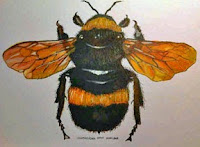
I was unpacking a Christmas gift this afternoon from a internet retailer and paused to think how closely connected we have all become in the on-line world.
And yet, we are remarkably distant from each other. From politics to families to human rights.
In the U.S., only about 7 of every 1000 children do not survive their first year. In Afghanistan, the number is 157. For every million children born there, 157,000 are lost to disease, lack of medical treatment, nutrition, hypothermia and other causes during their first year.
The same high mortality numbers are found in Chad, Somalia, Nigeria, Rwanda, Ethiopia, and Iraq - throughout the developing world.
Nearly 20 million low birth weight babies are born each year, mostly in the developing world, and these babies are especially prone to hypothermia due to insufficient fat beneath the skin. Many mothers won't even name their babies for several months, until they have lived past their most perilous period.
In 2008, a group of students from Stanford's Design Institute developed a warming device to address the problem of infant hypothermia. For their work, they won the Stanford Social Entrepreneurship Challenge, an award given to companies with the power to create social change. Distribution has started in India, and it is projected that by 2013, they will save more than 100,000 babies in that country and prevent illness in 800,000.
But there are other crises yet unaddressed.
Africa has over
14 million AIDS orphans. In developing and transitional countries, 9.5 million people are in immediate need of life-saving AIDS drugs; of these, only 4 million (42%) are receiving the drugs.
Inadequate sanitation is one of humanity's most urgent yet solvable crises, according to many scientists. Haiti, like many third world countries, has no sewage treatment plants anywhere. In many developing countries, raw sewage is taken to garbage dumps. Ground water becomes contaminated.
Malnutrition is spreading across the globe, primarily in children. It affects one of every three children in developing countries and accounts for as many as five million deaths annually. It magnifies the effect of every disease, including measles and malaria.
Undernutrition is an underlying cause of death in diseases such as diarrhea (61%), malaria (57%), pneumonia (52%), and measles (45%) (Black 2003, Bryce 2005).
Malaria is the 5th leading cause of death from infectious diseases
worldwide (after respiratory infections, HIV/AIDS, diarrheal diseases, and tuberculosis) and the 2nd leading cause of death from infectious disease in Africa, after HIV/AIDS.
If we are all becoming so closely connected, such a global community, why is innovation and action to affect social change not more valued, more rewarded, and more
expected? Where are the other students - and sponsors - like the ones at Stanford - who will step forward to affect change?
If we can provide low-cost sewage treatment facilities the size of semi trailers - ones that also generate potable water - why aren't they found in Port Au Prince and Chad?
If the world can buy 345 million smart phones this year, why can't we find ways to make HIV medicines available for those who are dying for them in Africa?
This Christmas, I wish we would all begin to have a closer connection to each other. A greater awareness of why we need innovation and commitment. If we place a social value on that, we'll begin to see change. Safer drinking water, healthier babies, fewer orphans.
Then, perhaps, we'll see an uncommon good become as common as it should be.











